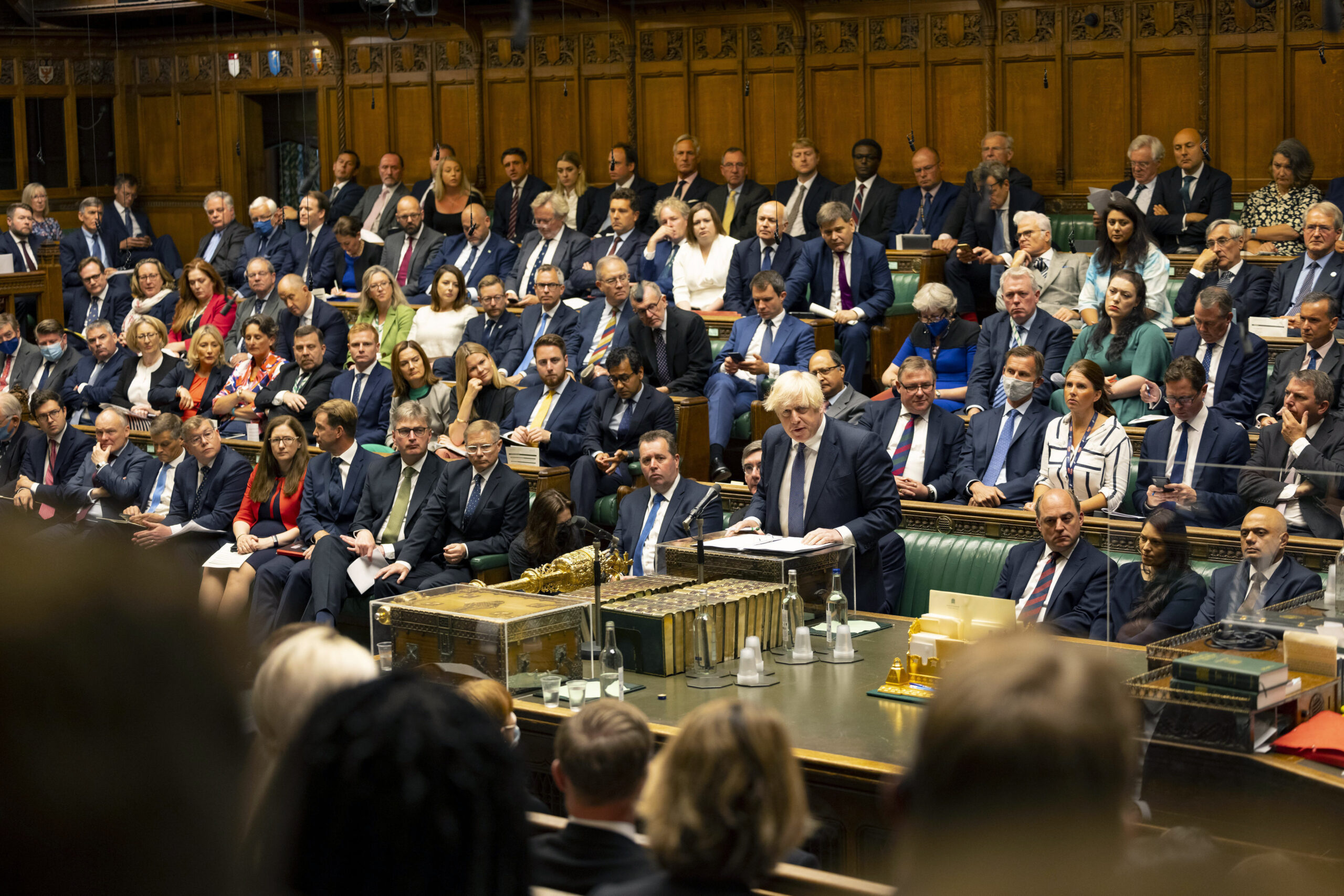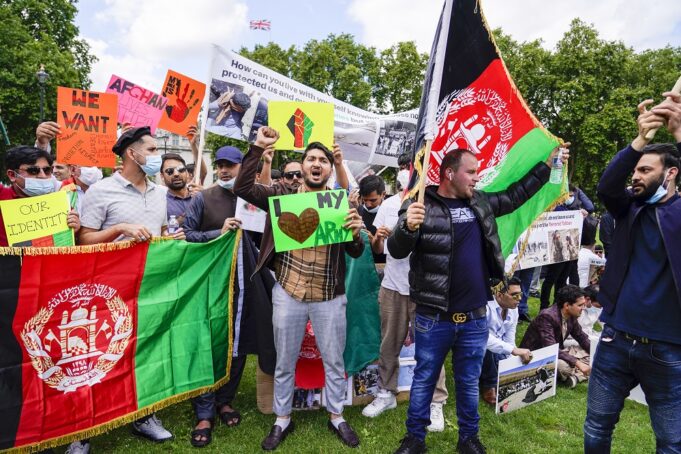“And the devil will say, when the matter is decided: Surely Allah promised you a promise of truth, and I promised you, then failed you. And I had no authority over you, except that I called you and you obeyed me; so blame me not but blame yourselves. I cannot come to your help, nor can you come to my help.”— Holy Qur’an 14:22
World powers are struggling to hasten evacuations from Afghanistan amid unconfirmed reports of Taliban reprisals. At the same time President Joe Biden insisted that chaos following the American troop withdrawal had not diminished Washington’s international credibility.
In the cloud of stark criticism over his administration’s handling of the crisis President Biden pledged to evacuate all American nationals who wish to leave.
“We will get you home,” said President Joe Biden in a White House press conference. “I have seen no question of our credibility around the world from our allies,” he added. “We are united with our closest partners to execute the mission at hand.”
However, President Biden’s claim of unity and U.S. credibility is being called a delusion. Dejected allies who fought 20 years alongside America’s occupation accused it of betrayal and duplicity. The European Union, Germany, France and especially Britain voiced blistering denunciations of America over the turn of events.
“The West could not continue this US-led mission—a mission conceived and executed in support and defense of America—without American logistics, without U.S. air power and without American might,” argued British Prime Minister Boris Johnson.
America and Western allies are scrambling to handle military defeat, the collapse of the American backed Afghan government, and dramatic return to power of the Taliban, their consummate foe.
America now joins the list of world powers like Britain and the Soviet Union that were decisively defeated in Afghanistan, known as the “graveyard of empires.”
“They are humiliated and embarrassed to the world to see themselves in this kind of quagmire … being driven out of Afghanistan,” said Abdul Akbar Muhammad, international representative of the Nation of Islam.
The world watched the swift fall of the U.S.-backed Afghan government to the Islamic Emirate of Afghanistan, popularly known as “the Taliban” who previously ruled before being overthrown by America in 2001. The rapid breakdown of the 300,000-strong U.S.-trained Afghan military “proved incapable of defending the country”—an eventuality that “did happen more rapidly than we anticipated,” admitted U.S. Secretary of State Antony Blinken.
In his book, “The Fall of America,” the Most Honorable Elijah Muhammad, Eternal Leader of the Nation of Islam described America in a situation of reaping what she has sown and losing friendship with other nations of the Earth.
“America has done the worst work of deceiving other peoples and making false friendships with them,” wrote Elijah Muhammad. “Now her time has come. No one wants to trust her for friendship, for she has deceived many nations,” He continued. His words adequately tell the story of the defeat and subsequent confusion in Afghanistan.
America boasted that it crushed Al-Qaida and eliminated Osama Bin Laden—the pretext she claimed brought her to Afghanistan 20 years ago. However, like her ally Britain, that once boasted its territorial empire was so vast, the sun never sets on it, there is no British Empire today for the sun or moon to set on. The 20-year war was America’s longest. It grew increasingly unpopular among war-weary Americans and costly in blood and treasure with no perceivable gain.
Washington spent $2.26 trillion according to figures compiled by the Cost of War Project at Brown University’s Watson Institute of International and Public Affairs. The mammoth figure doesn’t include ongoing funds obligated for lifetime care to injured vets nor future interest payments on money borrowed to underwrite the war, said the Project’s website.
The Project estimates that 174,000 people died in Afghanistan as a direct result of the war. Over 6,000 Americans, soldiers, private contractors, over 100,000 Afghans and scores of NATO-allied soldiers died.
The U.S., Britain, and other NATO allies withdrew their troops from what has also been labeled the “forever war” by analysts. For America the defeat was déjà vu, redolent of its war in Vietnam during the 1960s and 70s.
“Those who fail to learn the lessons of history are doomed to repeat them,” Min. Akbar Muhammad reasoned. America was warned that she will never win a war in Vietnam where she subsequently lost 58,000 soldiers and the war.
“America arrogantly went in and lost that war because they would not listen to sound advice,” said Min. Akbar Muhammad. He pointed out that America, like Britain and the Soviet Union—past losers in Afghanistan—was told the Afghan people would never stop fighting.
“They were warned Afghans would fight to the end because in their belief system no foreigners should occupy their land,” he said.
“We should not be repeating the same stuff over and over again,” agreed Mauri Saalakhan, head of The Aafia Foundation, a Muslim-American human rights organization.

In only 10 days the Taliban moved across the country taking provinces and by Aug. 15 captured the capitol city Kabul. “We have reached what we were seeking, which is the freedom of our country and the independence of our people,” Mohammad Naeem, a Taliban spokesman told Al-Jazeera TV. “We do not think that foreign forces will repeat their failed experience in Afghanistan once again,” he said.
As Taliban forces reached Kabul, Afghan President Ashraf Ghani fled the country. In remarks on Aug. 14, Mr. Ghani, who led Afghanistan since 2014, said he left to avoid more Afghans dying and a bloodbath in the capitol. Through translated remarks he conceded defeat.
“The Taliban have won the sword and gun judgment and are now responsible for protecting the honor, property and life of their compatriots,” said Mr. Ghani. “But the legitimacy of hearts did not win them over … they are now facing a new historical test,” he added.
Mr. Ghani and his family were granted asylum by the United Arab Emirates on “humanitarian grounds” according to the UAE Ministry of Foreign Affairs and International Cooperation.
The Taliban upsurge was the result of the U.S. withdrawal by Presidents Biden and his predecessor Donald Trump.
Shocking images of frantic attempts to airlift American citizens in a chaotic scene at Kabul International Airport was shown worldwide. The unceremonious exit also showed thousands of desperate Afghans swarming the airport trying to leave. The Kabul airport has been the focus of intense international efforts to get foreigners, Afghan allies and other Afghans out of the country.
Many of the Afghans were translators and other professionals fearing consequences for aiding and abetting the foreign occupiers. Washington has about 5,800 soldiers controlling the airport. It’s unclear the number of U.S. citizens still in Afghanistan. President Biden said Aug. 22 that the U.S. military had evacuated 28,000 people from Afghanistan since Aug. 14, but many thousands of Americans remain.
The Pentagon is also pushing to meet an Aug. 31 deadline for complete troop withdrawal amid continued chaos and confusion at the airport including a brief firefight at one of the gates. And seven people, including a toddler, were trampled to death in a stampede Aug. 22.
According to Al Jazeera, the Taliban warned of “consequences” if the U.S. deadline is not met.
The move would mean “extending occupation” and that is “a red line”, Suhail Shaheen, a member of the Taliban delegation in Doha, the capital of Qatar, said on Aug. 23, reported Al Jazeera.
The Taliban is also now in control of a huge stash of U.S. weapons, military equipment and gear left behind by the Afghan army. In the weeks before the Taliban seized Kabul, retreating Afghan forces ditched billions of dollars’ worth of U.S.-supplied military hardware—from assault rifles to Black Hawk helicopters, reported NPR. “The Taliban wasted no time in gloating over their new war booty. Photos and video posted to social media show Taliban posing with captured aircraft, trucks, Humvees, artillery guns and night-vision goggles. Such equipment could be used to suppress internal dissent or fight off their rivals,” the outlet noted.
“We don’t have a complete picture, obviously, of where every article of defense materials has gone, but certainly, a fair amount of it has fallen into the hands of the Taliban,” said U.S. national security advisor Jake Sullivan.
An A.N.S.W.E.R. Coalition statement said the prevailing view is the war was unwinnable and America chose to abandon the government they installed, get the withdrawal over with, and focus on bigger issues for U.S. empire.
“It’s really a terrible tragedy, what happened to Afghanistan at the hands of the United States,” commented Richard Becker, an organizer for the anti-war A.N.S.W.E.R. Coalition.
He told The Final Call, although Afghanistan was a significant loss, America may eventually make a deal to recognize the new government. Afghanistan is a major geostrategic country bordering six nations including Pakistan, Iran, and China.
“They (America) have bargaining chips,” said Mr. Becker. He is referring to reports that the U.S. seized Afghanistan government accounts in American banks. According to the International Monetary Fund the Afghan central bank had $9.4 billion in reserve assets as of April,
However, the moves come amid a time of Washington’s decline of global hegemony.
“The world is now uncertain of where the West stands,” said Tony Blair, British prime minister during the invasion of Afghanistan. “Anyone given commitments by Western leaders will understandably regard them as unstable currency,” he said.
In a Satan cast out Satan rebuke on his Institute for Global Change website, Mr. Blair—whose own Afghanistan record is widely criticized—said the withdrawal was unnecessary and politically driven to appease an “imbecilic” slogan about ending forever wars.
Taliban spokesman Zabiullah Mujahid told media on Aug. 17 they desire peaceful foreign relations. Allaying worries that under Taliban rule, there would be increased threats from extremist groups, he said no group will be allowed to use Afghanistan for attacks against any nation. “I would like to assure the international community, including the United States, that nobody will be harmed,” said Mr. Mujahid. “We don’t want any internal or external enemies,” he added.
Nations like Iran and Russia gave diplomatic overtures to the new government and China expressed interest for positive relations. “America’s military defeat and its withdrawal must become an opportunity to restore life, security and durable peace in Afghanistan,” said Iranian President Ebrahim Raisi.
He said Iran supports efforts to restore stability in Afghanistan and, as a “neighboring and brother” nation, Iran encourages all groups in Afghanistan to reach a national agreement.
As the world watches the events unfold some observers say reaction must be careful.
There is a tremendous amount of very negative propaganda hurled at the Taliban by people who don’t have a trusted record of telling the truth, said Mr. Saalakhan. “So, we have to be very careful,” he said.
There is “pro and con” concerning the U.S. withdrawal, but also a unified narrative that nothing good can come with the Taliban retaking the country.
“We need to give them the benefit of the doubt and not just the fearmongering,” said Mr. Saalakhan. “Give them the chance to prove themselves,” he advises.













